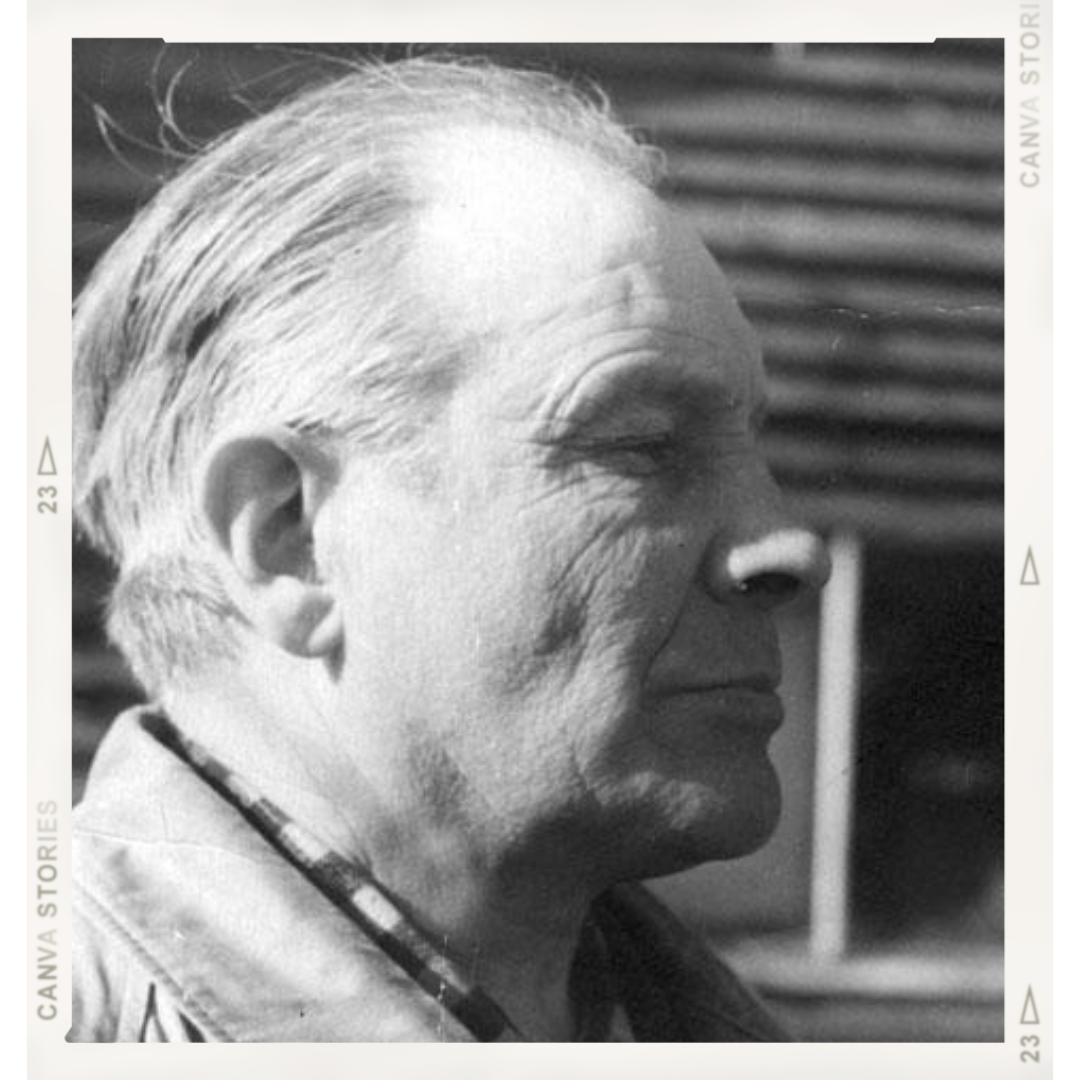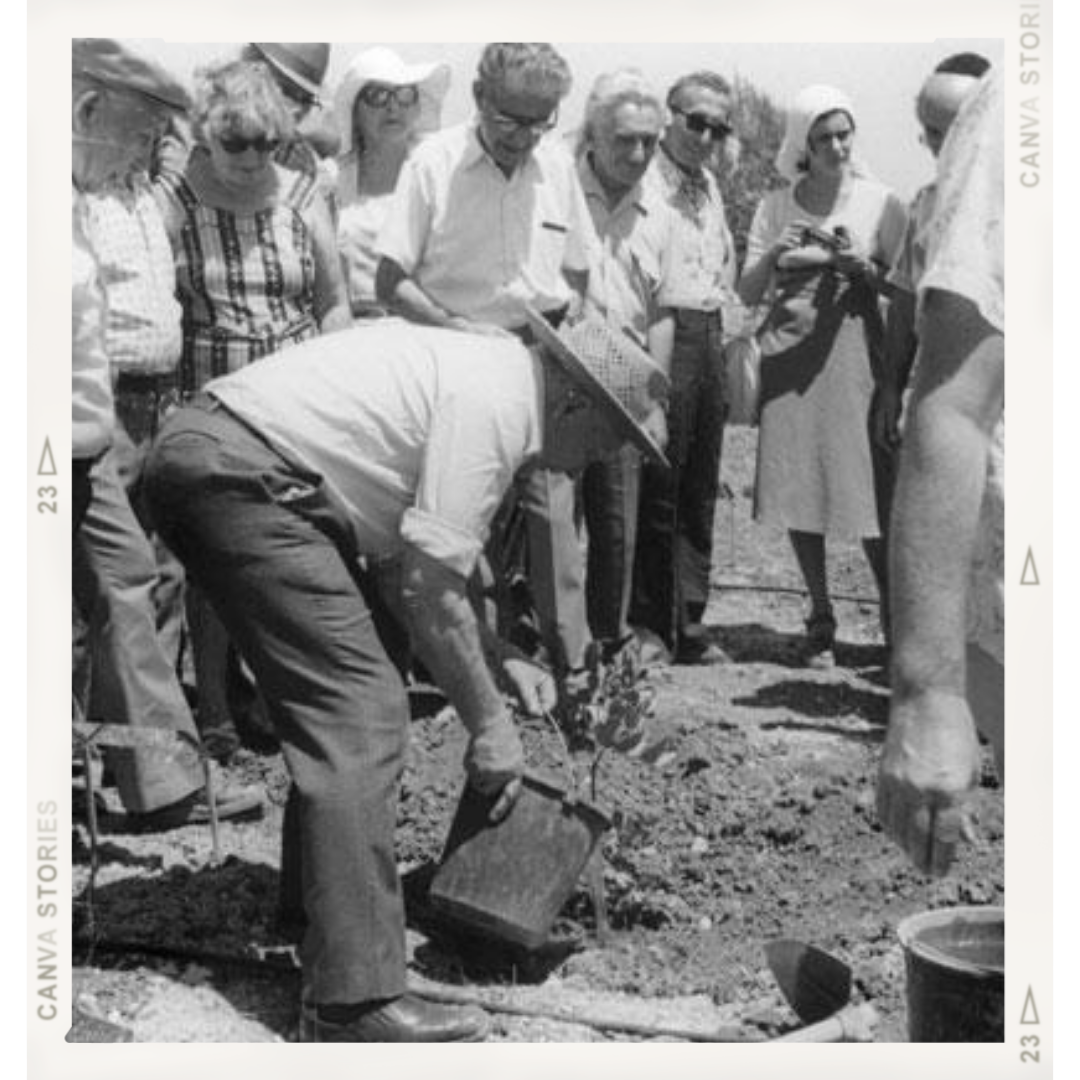Janice Joana Lipke
On the first day of July 1941, Riga was occupied by German troops, and just four days later, the choral synagogue, which was located in the Moscow forecourt, was burned down. Local collaborationist units actively assisted the German troops. In 1941 Schutzmann unit got into Lipke`s house with the purpose to arrest Janis Ainu’s daughter, who was a Komsomol member. Lipke`s daughter didn`t appear at home, thus mad police brutally beat the head of the family, his wife Johanna, and their sons Alfred and Siegfried.


Perhabs, this case was the reason why Lipke decided to to devote himself entirely to the cause of the salvation of the Jews. He left his his job as a docker and started working at the famous "red barns" (near the Central Market, where the local Luftwaffe headquarters was located (where materials for military needs were manned) to facilitate the rescue. In addition to it, being fluent in English helped him a lot — it could bring him closer to the German superiors and elevated him in the eyes of the common Latish guards.
Being responsible for hiring new recruits, Lipke was able to select prisoners from the Riga ghetto to work in the Luftwaffe warehouses. Janis Lipke was given an unlimited opportunity to enter the ghetto and participate in the selection of prisoners themselves. He had an ability to take a group of prisoners (only 10 people) to work during day and to return them under escort in the evening.
The ghetto`s guard were keeping records not by name but be head, which was to Lipke`s advantage to commit forgery, which involved verified accomplices of Janis. By the evening, out of ten prisoners taken from the ghetto, only seven or eight of them would return. The saved ones were hidden, while instead of them Lipke and his associates put on clothes with well-known yellow stars. After passing the security they could easily put off that clothes and leave the ghetto.
Lipke came up with several tricks similar to the previous one. Pretending to deliver ghetto confiscated furniture to German officers he was taking Jewish people out. In such a case no one would check the shipment.
He didn`t act alone: there were about 25 participants in his made up secret net, because saved Jews had to be fed and brought to a hiding spot in safe and sound. By the end of his operation Lipke got small arms and grenades for all of the rescued groups, Lipke and his assistants obtained the ammunition by stealing a German military truck.
While risking their lives and their families, Janis and his people could save 56 Jews from the ghetto and Riga-Kaiserwald Concentration Camp from certain death. He used to hide the rescued ones in outbuildings on his property and then sent them to farmsteads near Dobele with trusted peasants. In a bunker measuring 3 by 3 meters, digged by Lipke in his yard, there were often 8 to 12 people in the bunker for long periods of time. One exit from the bunker was under the dog house, and the other went out to the bank of the River Daugava.
Sometimes prisoners escaped from the ghetto`s barbed wire could secretly come to Lipke. Janis`s address scribbled in pencil in a phone booth near the Riga Air Bridge. The about it was spread around among friends and acquaintances and got to the ghetto. There always would be such people in Riga, as in the whole country, who were ready to risk and question their own safety to rescue Jewish. Working together they transported Jewish people from the ‘red barns' to a hiding place.
At the beginning of 1942, after the custody of the ghetto had become more severe, Lipka, like many other residents, was able to smuggle foodstuffs behind the barbed wire unnoticed by the guards. At that time, the ghetto was populated by Jews transported from abroad. Lipke got acquainted with a great number of saved ones, was keeping the contact between ghetto`s prisoners, was seeking for disapeared people by their relatives` request. Afterwards, he began hiding the rescued prisoners on the grounds of his farm in Kurzeme. His drivers Jankowski and Briedis continued to help him in transporting people. Lipka was sometimes tricked (he was even bribed with schnapps) when the Schutzmanns, who had heard about Lipke’s activities, violently and spontaneously searched his home in Kipsala and his farm. To throw the police dogs off the scent, Lipke’s wife Johanna bought large quantities of flavoured tobacco and scattered it in the yard.
Being responsible for hiring new recruits, Lipke was able to select prisoners from the Riga ghetto to work in the Luftwaffe warehouses. Janis Lipke was given an unlimited opportunity to enter the ghetto and participate in the selection of prisoners themselves. He had an ability to take a group of prisoners (only 10 people) to work during day and to return them under escort in the evening.
The ghetto`s guard were keeping records not by name but be head, which was to Lipke`s advantage to commit forgery, which involved verified accomplices of Janis. By the evening, out of ten prisoners taken from the ghetto, only seven or eight of them would return. The saved ones were hidden, while instead of them Lipke and his associates put on clothes with well-known yellow stars. After passing the security they could easily put off that clothes and leave the ghetto.
Lipke came up with several tricks similar to the previous one. Pretending to deliver ghetto confiscated furniture to German officers he was taking Jewish people out. In such a case no one would check the shipment.
He didn`t act alone: there were about 25 participants in his made up secret net, because saved Jews had to be fed and brought to a hiding spot in safe and sound. By the end of his operation Lipke got small arms and grenades for all of the rescued groups, Lipke and his assistants obtained the ammunition by stealing a German military truck.
While risking their lives and their families, Janis and his people could save 56 Jews from the ghetto and Riga-Kaiserwald Concentration Camp from certain death. He used to hide the rescued ones in outbuildings on his property and then sent them to farmsteads near Dobele with trusted peasants. In a bunker measuring 3 by 3 meters, digged by Lipke in his yard, there were often 8 to 12 people in the bunker for long periods of time. One exit from the bunker was under the dog house, and the other went out to the bank of the River Daugava.
Sometimes prisoners escaped from the ghetto`s barbed wire could secretly come to Lipke. Janis`s address scribbled in pencil in a phone booth near the Riga Air Bridge. The about it was spread around among friends and acquaintances and got to the ghetto. There always would be such people in Riga, as in the whole country, who were ready to risk and question their own safety to rescue Jewish. Working together they transported Jewish people from the ‘red barns' to a hiding place.
At the beginning of 1942, after the custody of the ghetto had become more severe, Lipka, like many other residents, was able to smuggle foodstuffs behind the barbed wire unnoticed by the guards. At that time, the ghetto was populated by Jews transported from abroad. Lipke got acquainted with a great number of saved ones, was keeping the contact between ghetto`s prisoners, was seeking for disapeared people by their relatives` request. Afterwards, he began hiding the rescued prisoners on the grounds of his farm in Kurzeme. His drivers Jankowski and Briedis continued to help him in transporting people. Lipka was sometimes tricked (he was even bribed with schnapps) when the Schutzmanns, who had heard about Lipke’s activities, violently and spontaneously searched his home in Kipsala and his farm. To throw the police dogs off the scent, Lipke’s wife Johanna bought large quantities of flavoured tobacco and scattered it in the yard.